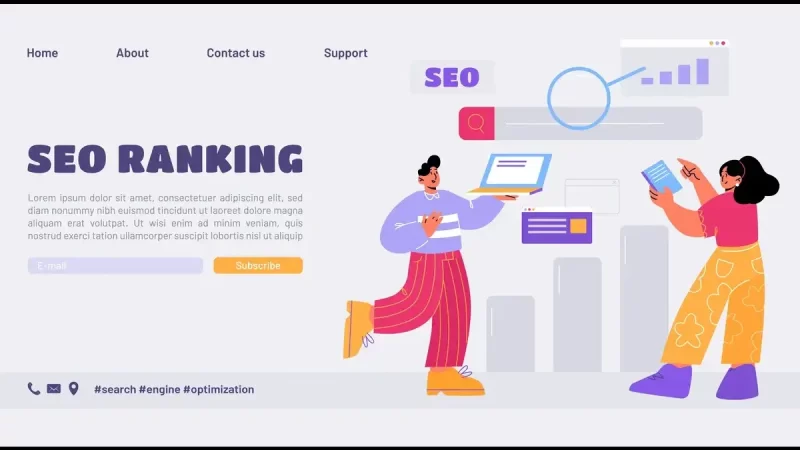Explained: Creating People-First Content for Google Search Success

Creating content that is tailored for search engines might have worked in the past, but with Google’s ever-evolving algorithm, it’s crucial to shift towards people-first content. Here are some warning signs to consider when creating content:
Is the content primarily made to attract visits from search engines?
This point refers to content that is created solely to rank higher on search engine results pages (SERPs) and doesn’t necessarily provide value to the readers. This type of content is often stuffed with keywords and lacks relevance or depth. Google rewards content that is created for the benefit of users rather than just for search engines.
Are you producing lots of content on many different topics in hopes that some of it might perform well in search results?
Creating a large amount of content on a wide variety of topics with the goal of ranking higher on search engines can often result in low-quality content that lacks depth or relevance. It’s better to focus on creating high-quality content that provides value to your audience and answers their questions.
Are you using extensive automation to produce content on many topics?
Using automation to produce content can result in content that is low-quality, lacks originality, and doesn’t provide value to the readers. It’s important to create content that is original, engaging, and valuable to your audience.
Are you mainly summarizing what others have to say without adding much value?
Creating content that is simply a summary of what others have already said without adding any original value or perspective can result in low-quality content that doesn’t provide any additional benefit to the reader. It’s important to add your own insights, opinions, and analysis to the content you create.
Are you writing about things simply because they seem trending and not because you’d write about them otherwise for your existing audience?
Creating content solely based on trends and not considering whether it provides value to your existing audience can result in low-quality content that lacks relevance and depth. It’s important to create content that is relevant to your audience and provides value to them.
Does your content leave readers feeling like they need to search again to get better information from other sources?
Creating content that doesn’t provide complete or accurate information can result in readers feeling unsatisfied and searching for better information from other sources. It’s important to create content that is accurate, complete, and provides value to your audience.
Are you writing to a particular word count because you’ve heard or read that Google has a preferred word count?
(No, we don’t.) Focusing on meeting a particular word count instead of creating valuable content can result in content that lacks relevance and depth. It’s important to focus on creating valuable content that provides answers to the questions your audience is asking, rather than trying to meet a particular word count.
Did you decide to enter some niche topic area without any real expertise, but instead mainly because you thought you’d get search traffic?
Creating content on topics that you don’t have expertise in can result in low-quality content that lacks accuracy and depth. It’s important to create content that is relevant to your expertise and provides value to your audience.
Does your content promise to answer a question that actually has no answer, such as suggesting there’s a release date for a product, movie, or TV show when one isn’t confirmed?
Creating content that provides inaccurate or misleading information can result in readers feeling unsatisfied and searching for better information from other sources. It’s important to provide accurate and complete information to your audience.
To be successful with Google Search, content should be created with people in mind, providing value and relevance to your target audience. By avoiding these warning signs, your content will be better optimized for Google’s algorithm, resulting in higher rankings and increased traffic.
What about SEO? Isn’t that search engine-first?
SEO, or search engine optimization, is a set of techniques that can help search engines better discover and understand your content. While SEO can be helpful, it should be applied to people-first content, rather than search engine-first content. Google’s own SEO guide covers best practices to consider.
The key is to focus on creating high-quality, valuable content that is designed for people, not just search engines. When you create content that is useful, informative, and engaging for your audience, it is more likely to be shared and linked to, which can improve its visibility and search engine rankings.
SEO techniques can help support this effort, by making sure that your content is properly formatted, optimized for keywords, and includes appropriate metadata. However, it’s important to use these techniques in a way that is natural and organic, rather than trying to manipulate search engine rankings through tactics like keyword stuffing or link schemes.
Ultimately, the goal of SEO should be to create a great user experience for your audience, by making it easy for them to find and engage with your content. By focusing on people-first content and using SEO techniques to support that effort, you can improve your visibility in search results and attract more visitors to your site.







